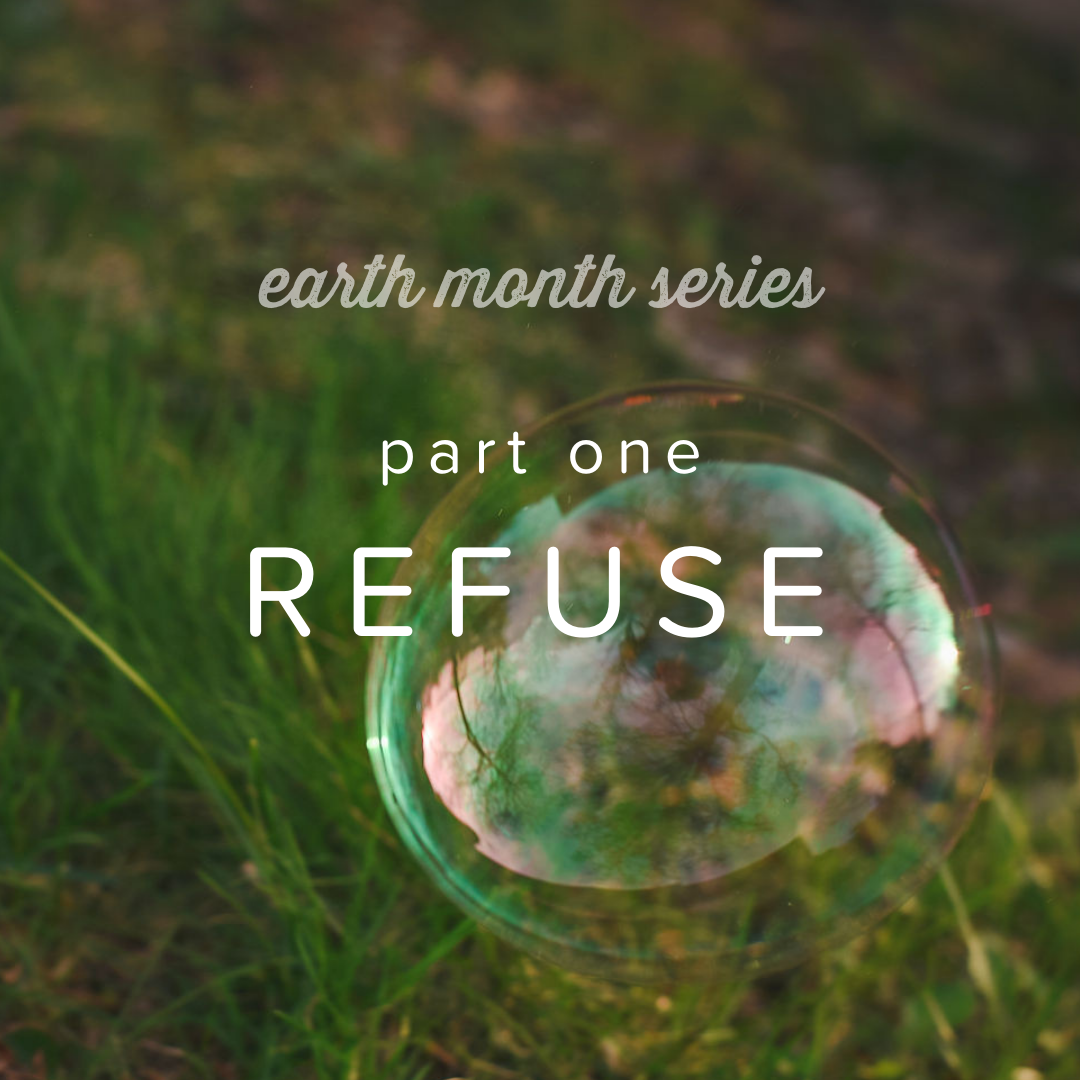
Part One: Refuse
This is part one of five in an earth month series. Check out the intro post here.
As an outdoor enthusiast, I have a running mental list of all the shiny new gear I can’t wait to get my hands on. Currently on the list are things such as a paddle seat for my toddler, an updated raincoat, and one of those really cool double-wide inflatable camping pads with a matching ultralight quilt-style duo sleeping bag.
But before reaching for my wallet to fuel my adventure-stoke, I always try to take a pause.

Why “refuse” to buy before considering other options?
Why is “refuse” at the top of the list of waste management, anyway?
The trash we don’t create in the first place doesn’t need to be managed, duh!
Please note: I’m not advocating that we deprive ourselves of new gear when the time is right. Or to feel guilty about the purchases we make or have made in the past.
Instead, I’m encouraging us to be mindful of what we already own, because as Allen Ginsberg puts it, “You own twice as much rug if you're twice as aware of the rug." (source)
And I’m suggesting that when we stop and think about it, there are other options than purchasing something to fulfill our needs! Maybe a friend has something you could borrow. Maybe there’s an option to find it 2nd hand. Maybe what you need more than that new item is just to get a little connection, so call a friend, take a walk and get some fresh air even if the weather sucks (especially because the weather sucks?)?

Consumer culture has trained us to fix any problem with a purchase.
What if, instead, we ask ourselves, why? What void am I trying to fill?
What if, instead, we considered community?
Storytime
I remember preparing for my very first backpacking adventure: I went to the attic and found my dad’s ancient backpack (no it was not comfortable, nor did it fit, but it got the job done).
I scavenged the local thrift store for a cookpot that I could use right in the coals (definitely not ultralight but it made a mean tuna mac!).
A friend taught me how to make a stove with that same tuna can so there was one less piece of gear we had to purchase (and it worked!).
And my bulky childhood sleeping bag, which took up 90% of the room in my pack, kept me 70% warm during the night (which was good enough for late spring in Virginia).
What do I remember most from that trip? My quirky gear? Nope.
What mattered most was the thrill of being on the trail, the smells of spring unfolding, fellow travelers we met and hearing their stories, watching the sun rise from atop of my favorite Appalachian peak without a house or powerline in sight.
Those are the golden memories I hold. And ... the satisfaction of making the most of the gear I resourcefully pieced together.
What I've Learned Since Then
As I mature, both in years and in my awareness of environmental issues, I am definitely grateful for advances in outdoor gear technology. Lightweight and technical gear makes certain adventures accessible that would otherwise be unfathomable. Not to mention, comfortable!
But the danger of consumerism is that we rush to fill the void with another thing.
How can we begin to REFUSE what we don’t need, and say: enough is enough?
How can we begin to think more like nature -- collectively, resourcefully, cyclically -- even as we outfit ourselves to enjoy it?
Strategy in Action
Thinking back to my own gear wish-list, I probably have some things lying around the house that could suffice as a toddler’s paddle seat (like empty olive oil buckets from soap making, ha!?).
My current raincoat is “good enough” for most of my daily adventures, and I have a few friends I could tap on the shoulder for a really technical one to get me through my one week backcountry trip this year.
And while that double wide camping pad sure would be nice, summer is usually too hot for snuggling anyway. For now, we can buy ourselves some time for big gear purchases and focus on the joy introducing our toddler to the Boundary Waters for the first time this summer. He won't remember how heavy our packs are, anyway!
Resources for Gear Sharing
If you find yourself in a situation where you'd love to borrow gear but don't have friends who have what you're looking for, there are gear libraries popping up everywhere, especially for youth and underrepresented groups in the outdoors.
Do a google search for gear libraries in your area. There are so many resources out there! Outdoors Empowered network is a great example.
Now it’s your turn…
The Challenge: Practice the Pause
When it comes to making thoughtfully clean decisions about adventuring sustainably, whether outdoors or at home, remember that REFUSING can be as fulfilling as reaching for the wallet and making the purchase. Chances are, it will provide more opportunities to make memories together.
How about you? What’s easy to REFUSE? What’s challenging? What brings you the most joy? (Do that!!)
